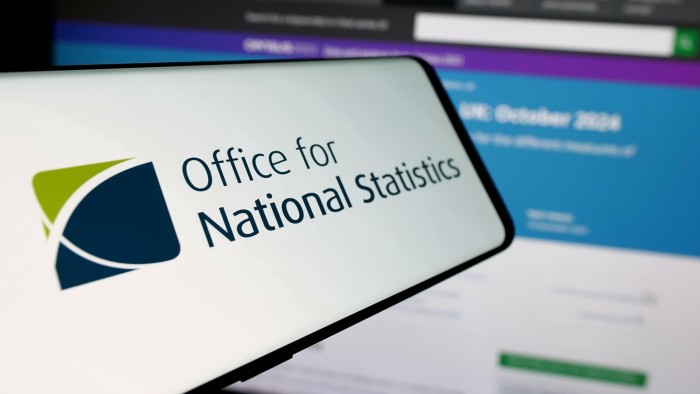Unlock the Editor’s Digest for free
Roula Khalaf, Editor of the FT, selects her favourite stories in this weekly newsletter.
Britain’s statistics agency must take “decisive action to restore confidence” in economic data, according to a review that highlights concerns over decision-making and resources at the embattled authority.
The report by the Office for Statistics Regulation concluded that “insufficient investment” in data collection was a primary cause of ongoing quality issues, with budget constraints a “consistent challenge” to finding the resources for high-priority areas.
Growing demands have meant the Office for National Statistics has been unable to maintain real-terms funding for surveys and data collection, despite prioritising economic statistics, the regulator found.
The findings, published on Monday, come less than a week after the ONS said it would refocus on core economic and population statistics as it faces growing criticism for errors and delays affecting data on employment, trade and prices.
Sir Ian Diamond, the UK national statistician, said last week the agency would have to prioritise areas with the “greatest impact” ahead of a real-terms budget cut this year. A “tight financial and human resources backdrop” would need difficult decisions, he noted.
The review called on the ONS to publish a “fully resourced plan” in the next four weeks to “build a credible case for increased resources” and improve transparency after staff and stakeholders raised concerns about “the effectiveness of its decision-making in allocating resources”.
“Stakeholders expressed widespread concern about the quality of survey data,” according to the review.
These concerns are focused on, but were not limited to, widely recognised problems with the Labour Force Survey, it added, referencing the data set that has not functioned since response rates plummeted after the pandemic.
On business surveys, while response rates have held up well, reflecting the mandatory nature of these surveys, the review found that “there is a growing risk to their quality and representativeness”.
Real-terms funding for economic statistics has stagnated since 2019-20, according to ONS data, despite additional pressures stemming from the pandemic and ambitious plans to overhaul data collection.
While resources for economic statistics increased by 65 per cent between 2015-16 and 2019-20 in real terms, the review found the “primary focus was on innovation” rather than additional money to deliver existing data.
The report referred to cultural issues at the agency, with staff reporting that “early warnings were not always appreciated or encouraged” and that talent was being lost because of a failure to recognise and reward expertise.
Last week the government launched a wider investigation into the ONS led by the former mandarin Sir Robert Devereux, which will probe the agency’s leadership, culture and structure.
The ONS said it had set out plans to focus resources on core economic and population statistics in its business plan. “We recognise and share concerns about data quality and are addressing these as a matter of urgency,” it added.




